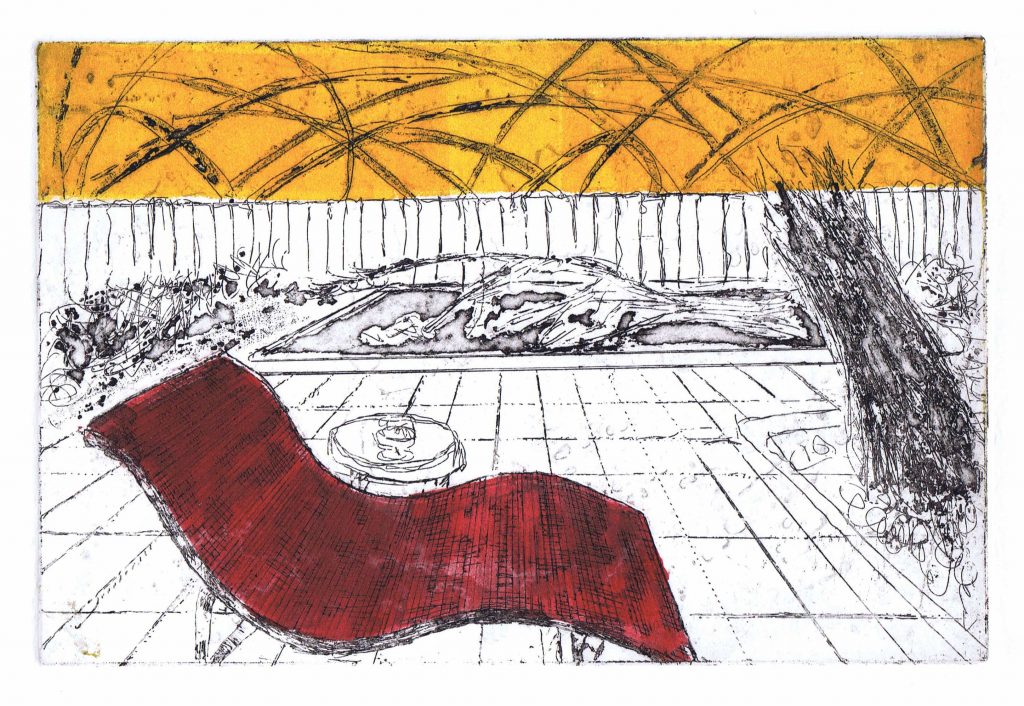
This artist proof is my submission to the Ottawa-Gatineau Printmakers Connective Gallery Exhition called Climate Change — A Pressing Matter. The exhibition runs at the Nepean Creative Arts Center, 35 Stafford Rd., Ottawa, from October 20 to February 23, 2023. An edition of 10 have been submitted to the Saskatchewan Printmakers’ 2022 International Print Exchange (SKIPE).
The image depicts the aftermath of Ottawa’s May 2022 derecho when trees were toppled into the artist’s daughter’s pool, destroying the new fence and lawn furniture. I wonder whether living with more frequent extreme weather events will become yet another “new normal,” as signified by the awaiting chaise longue and cocktail beside the tree-strewn pool.
Ottawa Hydro described the Derecho as Ottawa’s biggest storm yet. “With winds up to 190 km/h, the powerful derecho storm that devastated Ottawa on Saturday, May 21, left a trail of destruction like nothing Ottawa has ever seen or experienced before. From severe damage to property and Ottawa’s urban forest, the harm to our electrical infrastructure makes this storm our biggest yet; significantly worse than the 1998 Ice Storm and the 2018 tornadoes.” (B. Morgan, June 29, 2022, https://hydroottawa.com/en/blog/derecho-our-biggest-storm-yet.)
Much of the city experienced power outages, ranging in length from hours to more than a week in some sections of the city. Stittsville and areas in Ottawa’s south were particularly hard hit in terms of damage. My daughter and her partner were watching the storm whip their backyard. All of a sudden two neighbouring trees came uprooted and toppled into their pool, crushing their newly constructed metal fencing and their lawn furniture.
As quick as it came, the storm was gone leaving in its wake so much destruction. In Just Another Derecho Day, I imagine a backyard pool with a fallen tree; a pool-side recliner and a cocktail sit ready for the homeowner. Will climate change make severe weather events more everyday – something we learn to take in stride? Of course, I am being ironic. As severe weather, fires, floods, heat domes, droughts, food and water shortages, pandemics, wars, mass migrations, loss of species, and myriad anthropogenic calamities overtake our lives, it will be harder – even for the privileged – to just sit by the pool.
A first step is considering our own emergency preparedness to cope with the inevitable. We must also demand that authorities invest in “hardening” the infrastructure. After the ice storm I was terrified of being without power. It was winter and we feared frozen pipes bursting. Afterwards we converted our wood fireplace to gas. Other storms generally have come in warm weather. Power outages mean food loss. In May, I was glad to have my natural gas barbecue to boil water and cook food. We are being encouraged to eliminate fossil fuels but in the case of emergencies it has been a life saver. As we become more dependent on “green energy,” governments and utilities have to ensure those systems are as robust as natural gas.
